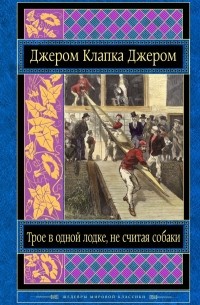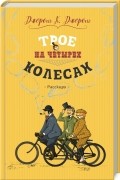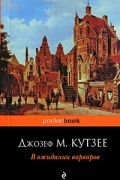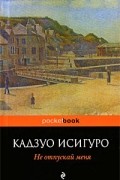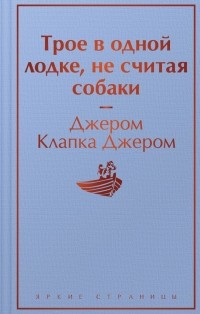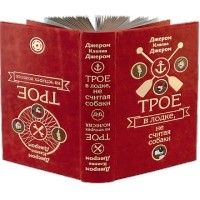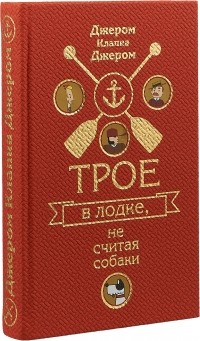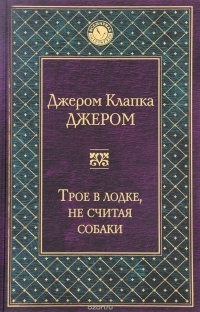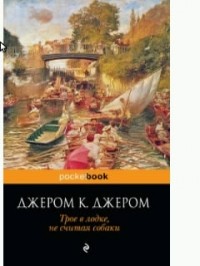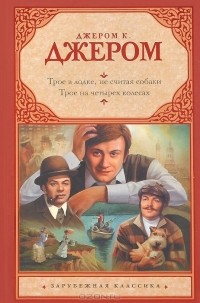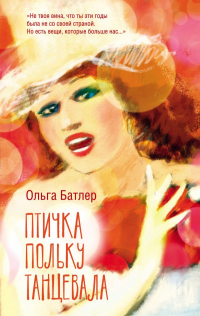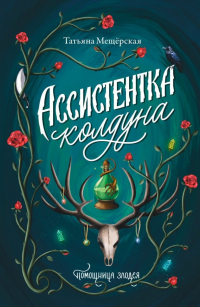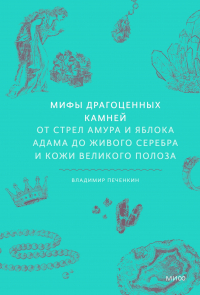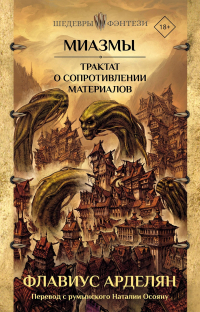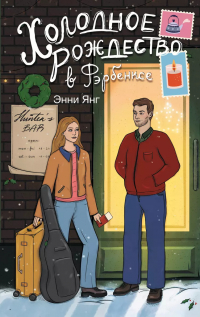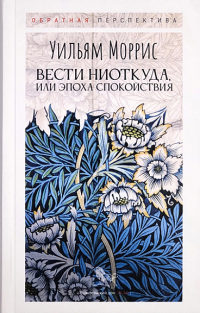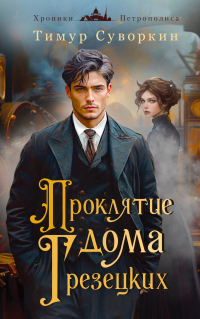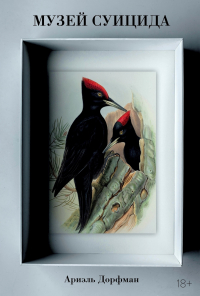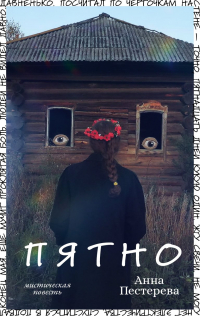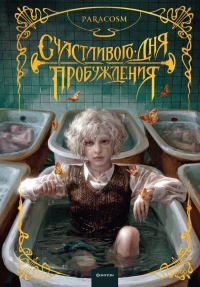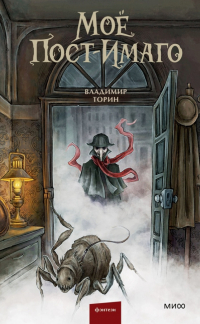Three Men in a Boat (To Say Nothing of the Dog),[Note 1] published in 1889, is a humorous account by Jerome K. Jerome of a boating holiday on the Thames between Kingston and Oxford.
The book was initially intended to be a serious travel guide, with accounts of local history along the route, but the humorous elements took over to the point where the serious and somewhat sentimental passages seem a distraction to the comic novel. One of the most praised things about Three Men in a Boat is how undated it appears to modern readers — the jokes seem fresh and witty even today.
The three men are based on Jerome himself (the narrator J.) and two real-life friends, George Wingrave (who went on to become a senior manager in Barclays Bank) and Carl Hentschel (the founder of a London printing business, called Harris in the book), with whom he often took boating trips. The dog, Montmorency, is entirely fictional but, "as Jerome admits, developed out of that area of inner consciousness which, in all Englishmen, contains an element of the dog." The trip is a typical boating holiday of the time in a Thames camping skiff. This was just after commercial boat traffic on the Upper Thames had died out, replaced by the 1880s craze for boating as a leisure activity.
Because of the overwhelming success of Three Men in a Boat, Jerome later published a sequel, about a cycling tour in Germany, entitled Three Men on the Bummel.
A similar book was published seven years before Jerome's work, entitled Three in Norway (by two of them) by J. A. Lees and W. J. Clutterbuck. It tells of three men on an expedition into the wild Jotunheimen in Norway.
____
Yet the book sold in huge numbers. "I pay Jerome so much in royalties," the publisher told a friend, "I cannot imagine what becomes of all the copies of that book I issue. I often think the public must eat them." The first edition was published in August 1889 and serialised in the popular magazine Home Chimes in the same year. The first edition remained in print from 1889 until March 1909, when the second edition was issued. During that time, 202,000 copies were sold. Jerome states in the author's introduction to the 1909 second edition, he'd been told another million copies had been sold in America by pirate printers. The book was translated into many languages. The Russian edition was particularly successful and became a standard school textbook. Jerome later complained in a letter to The Times of Russian books not written by him, published under his name in order to benefit from his success. Since its publication, Three Men in a Boat has never been out of print. It continues to be popular to the current day, with The Guardian ranking it #33 on The 100 Greatest Novels of All Time in 2003, and Esquire ranking it #2 in the 50 Funniest Books Ever in 2009.
The river trip is easy to re-create, following the detailed description, and this is sometimes done by fans of the book. Much of the route remains unchanged. For example, all the pubs and inns named are still open. A re-creation in 1993 by poet Kim Taplin and companions resulted in the travelogue Three Women in a Boat The book was also referenced in the 1956 parody novel on mountaineering, The Ascent of Rum Doodle, where the head porter Bing is said to spend "much of his leisure immersed in a Yogistani translation of Three men in a boat". In Have Space Suit—Will Travel, by Robert A. Heinlein, the main character's father is an obsessive fan of the book, and spends much of his spare time repeatedly re-reading it.
Science-fiction author Connie Willis paid tribute to Jerome's novel in her own 1997 Hugo Award-winning book To Say Nothing of the Dog. Her time-travelling protagonist also takes an ill-fated voyage on the Thames with two humans and a dog as companions, and encounters George, Harris, 'J' and Montmorency. The title of Willis' novel refers to the full title of the original book, "Three Men in a Boat - To Say Nothing of the Dog!".
--------
Three Men on the Bummel (also known as Three Men on Wheels) is a humorous novel by Jerome K. Jerome. It was published in 1900, eleven years after his most famous work, Three Men in a Boat (To Say Nothing of the Dog).
The sequel brings back the three companions who figured in Three Men in a Boat, this time on a bicycle tour through the German Black Forest. D. C. Browning's introduction to the 1957 Everyman's edition says "Like most sequels, it has been compared unfavourably with its parent story, but it was only a little less celebrated than Three Men in a Boat and was for long used as a school book in Germany." Jeremy Nicholas of the Jerome K. Jerome Society regards it as a "comic masterpiece" containing "set pieces" as funny or funnier than those in its predecessor, but, taken as a whole, not as satisfying due to the lack of as strong a unifying thread.
